Are Sphynx cats hypoallergenic? A common question that potential Sphynx cat owners have is if these hairless cats are hypoallergenic. The truth is that no breed of cat is 100 percent hypoallergenic, but some people do find that they are less allergic to Sphynx cats than to other breeds. If you’re considering getting a Sphynx cat and you’re worried about allergies, here’s what you need to know!
Sphynx Cats – About the Breed
History
Sphynx cats are a unique and interesting breed of cat. They are known for their hairless bodies and their inquisitive, outgoing personalities.
The Sphynx is a relatively new breed, having been first developed in the 1960s. However, the origins of the Sphynx go back much further. Hairless cats have been documented throughout history, and there is even a hairless cat mentioned in the Bible.
The modern Sphynx was developed in Toronto, Canada, by a group of breeders who set out to create a new breed of cat that combined the best attributes of both hairless and coated cats. The result was the Sphynx, a hairless cat with an outgoing personality and a love of people.
The kitten was mated with his mother (called backcrossing), which produced one more naked kitten. Together with a few naked kittens found later, the cat Prune was the first attempt to create a hairless breed.
In 1966, a Toronto breeder combined a hairless kitten with other breeds to produce the first litter of Sphynx cats. The breed was recognized by various cat clubs in the late 1970s and officially registered as an accepted breed in 2002.
Today, Sphynx cats are one of the most popular breeds of cats in the world. They are known for their unique appearance and their friendly, outgoing personalities. If you are looking for a new companion, consider adding a Sphynx cat to your family.
Appearence
The Sphynx is a medium-sized cat, with a slender body and long legs. They weigh between 6 and 12 pounds, and are typically between 10 and 13 inches long.
Sphynx cats are best known for their lack of hair. Their bodies are covered in a fine layer of downy fur, which is usually barely visible. The skin of a Sphynx cat is soft and wrinkled, similar to that of a chamois.
Sphynx cats come in a variety of colors and patterns, including black, blue, cream, red, tortoiseshell, and white. They can also have points (darker fur on their ears, face, legs, and tail), and mink or sepia points (a recessive gene that results in a Sphynx with darker fur on its body and lighter fur on its face, ears, legs, and tail).
Personality
Sphynx cats are known for their friendly, outgoing personalities. They are inquisitive and playful, and love to be the center of attention. Sphynx cats are also known for their Intelligence, and many excel at tricks and games.
Sphynx cats are very affectionate, and love to cuddle with their humans. They are also social animals, and do well in homes with other pets.
Care
Sphynx cats require special care due to their lack of hair. They should be groomed regularly with a soft brush, and their nails should be trimmed frequently. Sphynx cats also need to be bathed regularly, to remove the natural oils from their skin.
Sphynx cats are prone to a number of health problems, including respiratory infections, skin problems, and heart disease. They should be seen by a veterinarian regularly, and their health should be closely monitored.
The Sphynx is a unique and interesting breed of cat. If you are looking for a new companion, consider adding a Sphynx cat to your family.
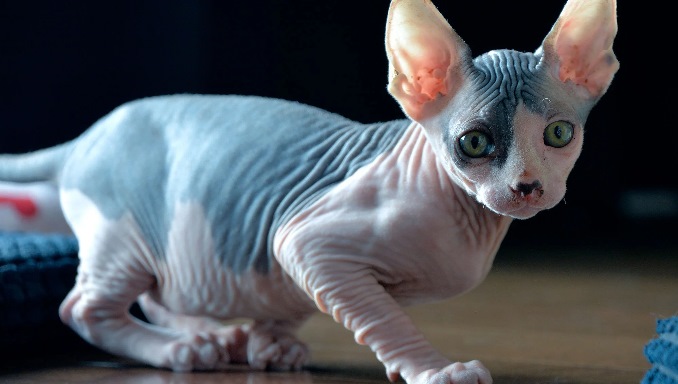
Pet allergy – Symptoms and Causes
Pet allergies are one of the most common types of allergies, affecting millions of people worldwide. Symptoms can range from mild (such as sneezing and itching) to severe (such as difficulty breathing). Some people may even have an allergic reaction to simply being in close proximity to a pet, such as a cat or dog.
There are a number of different substances in pet dander that can trigger an allergic reaction. These include proteins found in an animal’s skin, saliva, and urine. When a person comes into contact with these proteins, their body may produce histamines, which can lead to the symptoms of an allergy.
Pet allergies are often mistaken for other types of allergies, such as hay fever. It is important to see a doctor if you suspect that you may be allergic to a pet, so that they can confirm the diagnosis and advise on the best course of treatment.
There is no cure for pet allergies, but there are ways to manage the symptoms and make them more bearable. For example, some people may find that they can reduce their exposure to pet dander by keeping their pet out of the bedroom and using air filters in the home. Medications, such as antihistamines, can also help to relieve symptoms. In severe cases, it may be necessary to consult an allergy specialist.
If you have pet allergies, it is important to remember that you are not alone. Millions of people worldwide suffer from this condition, and there are ways to manage the symptoms and make life more comfortable.
Are Sphynx Cats Hypoallergenic?
Sphynx cats are not actually hypoallergenic, but they are significantly less likely to trigger allergies in people who are sensitive to them. This is because Sphynx cats produce very little saliva and dander, which are the two main allergens for people with cat allergies. Sphynx cats also require less grooming than other cats, which can further reduce the number of allergens in the home. If you’re considering getting a Sphynx cat, it’s still a good idea to spend some time around one first to see if you have any reaction.
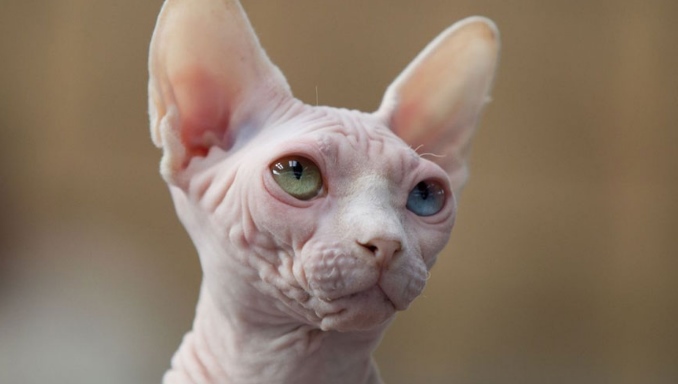
How to Know if You Are Allergic to Sphynx Cats
If you experience any sort of reaction after coming into contact with a Sphynx cat, it’s possible that you may be allergic to them. Allergies can range from mild to severe, so it’s important to pay attention to your body’s response and seek medical help if necessary. Some common symptoms of an allergy to Sphynx cats include:
-Itchy, watery eyes
-Sneezing
-Runny nose
-Itchy throat or mouth
-Difficulty breathing
If you experience any of these symptoms after being around a sphynx cat, it’s important to see a doctor as soon as possible to get tested for an allergy. With proper treatment, you can continue to enjoy the company of these unique cats without having to worry about your allergies.
How to Reduce the Risk of Allergies to Sphynx Cats
There is no guaranteed way to completely prevent allergies to Sphynx cats, but there are a few things you can do to reduce the risk. If you’re considering getting a Sphynx cat, it’s a good idea to spend some time around one first to see if you have any reaction. You can also ask your breeder or veterinarian for tips on how to reduce the amount of dander in your home. Some other things you can do to reduce the risk of allergies include:
-Washing your hands after coming into contact with a Sphynx cat
-Brushing your Sphynx cat outside to keep allergens out of the house
-Using air filters and vacuuming regularly to remove allergens from the air
-Keeping your Sphynx cat out of your bedroom
By taking these precautions, you can help to reduce the amount of allergens in your home and make it easier to live with a Sphynx cat if you’re allergic to them.
Do Sphynx Cats Shed?
Sphynx cats do not shed, but they still require regular grooming to remove excess oil from their skin. This oil can build up and cause problems if it isn’t removed, so it’s important to groom your Sphynx cat on a regular basis. There are a few different ways to groom a Sphynx cat, including bathing, brushing, and using special wipes. It’s important to talk to your veterinarian about the best way to groom your Sphynx cat, as some methods may be better for their individual needs.
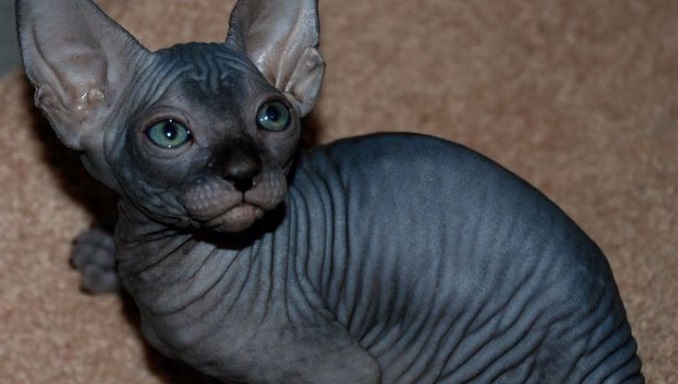
How to Groom a Sphynx Cat
The best way to groom your Sphynx cat will depend on their individual needs, so it’s important to talk to your veterinarian first. They can help you choose the best method for your cat and give you specific instructions on how to groom them properly. In general, though, there are a few steps you’ll need to follow when grooming a Sphynx cat:
-Start by brushing or combing their fur to remove any knots or tangles.
-If you’re going to bathe them, wet their fur with warm water and shampoo them gently. Avoid getting soap in their eyes, nose, or mouth.
-Rinse the shampoo out thoroughly and dry their fur with a soft towel.
-Brush their fur again to remove any remaining tangles.
-Use special wipes to clean their skin and remove any excess oil.
-Give them a treat and plenty of praise when you’re finished!
How Often Should You Groom a Sphynx Cat?
The frequency of grooming will depend on the individual Sphynx cat, but most need to be groomed at least once a week. Some may need to be groomed more often, especially if they have a lot of oil on their skin. If you’re not sure how often to groom your Sphynx cat, talk to your veterinarian for advice.
What Tools Do You Need to Groom a Sphynx Cat?
The type of grooming tools you’ll need will depend on the method you use to groom your Sphynx cat. If you’re going to bathe them, you’ll need shampoo, a soft brush, and a cup or pitcher for rinsing. If you’re going to brush them, you’ll need a soft brush designed for cats. You can also use special wipes made for Sphynx cats, which will help remove oil and keep their skin clean.
Things to Know before Raising Sphynx Cats
If you’re considering adding a Sphynx cat to your home, there are a few things you should know first. While these cats are incredibly unique and make great pets, they do require some special care. Here’s what you need to know about Sphynx cats before bringing one home.
1. They Don’t Have Fur, But They’re Not Hypoallergenic
While Sphynx cats don’t have fur, they do produce dander and oil just like any other cat. This means that they’re not hypoallergenic and may not be a good choice for people with severe allergies.
2. They Love to Be Held and Cuddled
Sphynx cats love to be held and cuddled. They’re very affectionate and enjoy being close to their humans.
3. They’re High Energy and Need Lots of Exercise
Sphynx cats are high energy and need lots of exercise. They love to play and can be destructive if they’re bored. Make sure you have plenty of toys and a scratching post for your Sphynx cat.
4. They’re Prone to Health Problems
Sphynx cats are prone to health problems, especially respiratory issues. Be sure to take them to the vet regularly and get them vaccinated against common illnesses.
5. They Need Special Care in Hot Weather
Sphynx cats need special care in hot weather. They can’t sweat and can overheat quickly. Be sure to keep them cool and out of the sun during summer months.
Sphynx cats are unique, affectionate pets that require some special care. If you’re prepared to meet their needs, they can make great additions to your family.
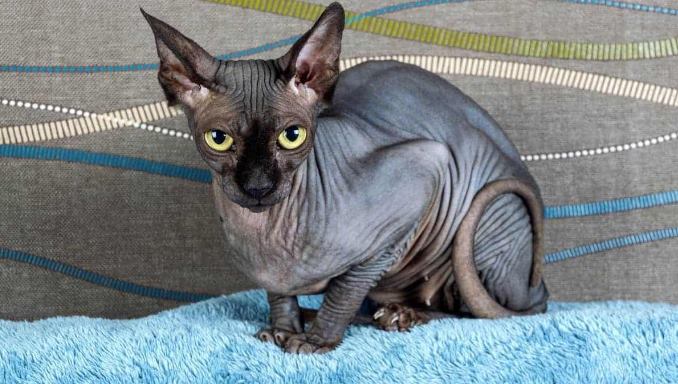
Common Health Problems of Sphynx Cats
Sphynx cats are known for being relatively healthy compared to other cat breeds, but they are still susceptible to some health problems. Here are some of the most common health problems that Sphynx cats can face:
1. Respiratory difficulties: Because Sphynx cats lack fur, they are more prone to respiratory problems than other cats. They may develop colds more easily, and they are also at risk for asthma and other respiratory illnesses.
2.Skin problems: Sphynx cats’ skin is very sensitive, and they can develop various skin problems, such as allergies, rashes, and infections.
3.Eye problems: Because Sphynx cats have large, exposed eyes, they are more susceptible to eye problems than other cats. They can develop conjunctivitis, glaucoma, and other eye disorders.
4.Dental problems: Sphynx cats can also suffer from dental problems, such as tooth decay and gum disease.
5.Kidney problems: Sphynx cats are also at risk for kidney problems, such as renal failure.
6.Cancer: Like all animals, Sphynx cats are also at risk for cancer. However, they seem to be particularly susceptible to certain types of cancer, such as lymphoma and squamous cell carcinoma.
The best way to keep your Sphynx cat healthy is to take them to the vet for regular checkups and to be aware of the signs and symptoms of common health problems. If you think your Sphynx cat may be sick, don’t hesitate to contact your veterinarian.
Diet of Sphynx Cats
A Sphynx cat’s diet is not very different from that of any other domestic cat. They need a high-quality, meat-based diet with moderate fat content and low carbohydrates. However, because they have such high energy levels and are constantly active, they may need up to 50% more calories than a sedentary cat.
Sphynx cats also require more protein than other cats. A minimum of 30% of their diet should be made up of protein, with some sources suggesting that as much as 50% may be necessary. Animal-based proteins are the best source of nutrition for Sphynx cats, so look for foods that are high in animal protein and low in plant protein.
The best way to ensure that your Sphynx cat is getting the nutrition they need is to feed them a high-quality, commercially prepared diet that is specifically designed for active cats. You can also supplement their diet with meat-based treats andhuman-grade raw meat or poultry.
When it comes to how much food a Sphynx cat needs, it really depends on their age, activity level, and weight. Kittens and young cats need more calories than adults, and active cats need more calories than sedentary cats. As a general rule of thumb, most Sphynx cats will need between 200 and 300 calories per day.
If you are unsure how many calories your Sphynx cat needs, talk to your veterinarian. They can help you determine the right amount of food based on your cat’s individual needs.
What Foods Can I Consider for Sphynx Cats?
There are a few things to consider when picking food for your Sphynx cat.
First, since they do not have fur, they can be prone to getting cold easily. This means that you might want to look for foods that contain more calories and fat than usual to help them maintain their body heat.
Another thing to consider is that Sphynx cats can be prone to digestive issues. This means that you’ll want to look for foods that are easy to digest and won’t cause any stomach upset. Some good options include canned pumpkin, cooked sweet potato, and boiled chicken.
Finally, since Sphynx cats are such social creatures, you might want to consider getting a food that contains taurine to help them stay healthy and happy.
What to Prepare before Raising Sphynx Cats?
Before you bring your Sphynx cat home, there are a few things you’ll need to do to prepare.
First, you’ll need to get a litter box and some litter. Sphynx cats do not have fur, which means they can be prone to getting cold easily. As such, it’s important to get a litter box that has high sides to help keep them warm. You’ll also want to get a litter that is easy to clean up, as Sphynx cats can be messy eaters.
Second, you’ll need to get some toys and scratching posts. Sphynx cats are very active and love to play. They also have sharp claws that can quickly destroy your furniture. To avoid this, it’s important to provide them with some toys and scratching posts to keep them amused and their claws sharp.
Finally, you’ll need to get a cat carrier. This is important for two reasons. First, it will allow you to bring your Sphynx cat home safely. Second, it will provide them with a safe place to hide away when they need some time to themselves.
Sphynx cats are unique and wonderful creatures. They are very active and social, and they make great companion animals. However, they do require some special care to ensure that they stay healthy and happy. By following the tips above, you can make sure that your Sphynx cat has everything they need to thrive.
Pros and Cons of Having a Sphynx cat
Sphynx cats are a unique breed of cat that is known for their hairless appearance. While they may look different than other cats, they actually have many of the same characteristics as other felines. This includes being independent, affectionate, and playful. However, there are also some distinct differences between Sphynx cats and other cats that you should be aware of before making the decision to bring one into your home. Here are some of the pros and cons of owning a Sphynx cat.
PROS:
1. They Make Great Companions
Sphynx cats enjoy being around people and make great companions. They are known for being affectionate and loving, and will often follow their owners around the house. They also enjoy playing games and being petted. If you are looking for a cat that will be a loyal friend, a Sphynx is a good choice.
2. They Are Low Maintenance
Sphynx cats do not require as much care as other types of cats. They do not need to be brushed or have their nails trimmed. They also do not shed, so you won’t have to worry about hairballs. If you are looking for a cat that is low maintenance, a Sphynx is a good choice.
3. They Are Intelligent
Sphynx cats are known for being intelligent and quick learners. They can be taught tricks and commands, and are often easy to litter train. If you are looking for a cat that is smart and easy to care for, a Sphynx is a good choice.
4. They Are Unique
Sphynx cats are unique in both their appearance and their personality. They are sure to turn heads and attract attention wherever they go. If you are looking for a cat that is different from the rest, a Sphynx is a good choice.
CONS:
1. They Are Expensive
Sphynx cats can be expensive, especially if you purchase one from a breeder. They typically cost between $1000 and $1500. If you are looking for a cat that is more affordable, another breed may be a better choice.
2. They Require Special Care
Sphynx cats require special care due to their hairless bodies. They need to be bathed regularly, and their skin needs to be moisturized to prevent dehydration. They are also susceptible to sunburn, so they should be kept indoors or in the shade when outdoors. If you are not willing to provide the special care that a Sphynx needs, another breed may be a better choice.
3. They May Not Be Suitable for All Families
Sphynx cats may not be suitable for all families. They are known for being active and playful, and may not do well in a home with small children. If you have young children, another breed may be a better choice.
4. They May Not Be Suitable for All Homes
Sphynx cats may not be suitable for all homes. They do best in a warm climate, and may suffer in a cold climate. If you live in a cold climate, another breed may be a better choice.
Sphynx cats are a unique breed of cat that offers many benefits to owners. However, they also require special care and may not be suitable for all families. If you are considering adding a Sphynx cat to your home, be sure to do your research to make sure that they are the right fit for you.
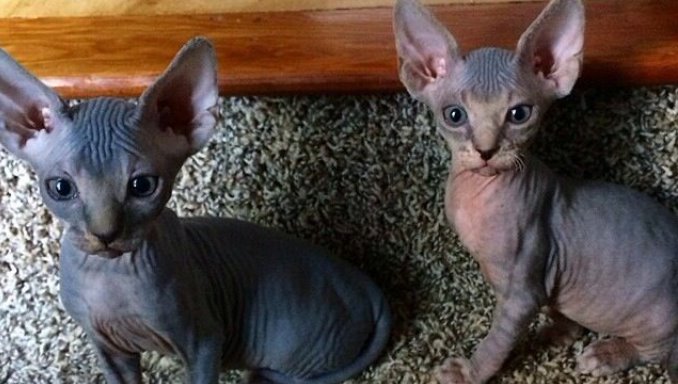
FAQs
What is the best cat for someone with allergies?
There are a few different types of cats that are known to be good for people with allergies. These include the Siberian, the Cornish Rex, and the Devon Rex. Each of these breeds has a very low level of protein that is known to cause allergies in people. If you are looking for a cat that is hypoallergenic, one of these breeds may be the best option for you.
While there are a few different hypoallergenic cat breeds, the Sphynx is typically considered to be a good choice for someone with allergies. This is because they do not shed and produce significantly less dander than other cats.
What is the cheapest hypoallergenic cat?
There is no one definitive answer to this question as the cost of a hypoallergenic cat can vary depending on the specific breed, where you purchase it from, and other factors. However, some of the cheaper options for hypoallergenic cats include the Siberian cat and the Devon Rex. You can expect to pay anywhere from $500 to $1,500 for one of these breeds.
Do hairless cats get fleas?
Yes, hairless cats can get fleas. In fact, because they don’t have the protective coat of fur that other cats have, they may be even more susceptible to them. If your hairless cat has fleas, you’ll need to take special care to treat the problem quickly and effectively. Otherwise, your cat may become uncomfortable and even sick.
What vaccines do Sphynx cats need?
The sphynx cat is a unique and beloved pet, known for its hairless coat and friendly personality. Because they are so different from other cats, it’s important to make sure that they receive the proper vaccinations. There are a few essential vaccinations that all sphynx cats should receive:
- Rabies: This is a deadly virus that all cats should be vaccinated against.
- Feline Leukemia: This is a common disease in cats, and sphynx cats are especially susceptible.
- Feline Immunodeficiency Virus: This virus can weaken the immune system, making sphynx cats more susceptible to other illnesses.
- Calicivirus: This is a common virus that can cause respiratory infections in cats.
- Chlamydia: This is another common virus that can cause respiratory infections in cats.
Sphynx cats should also be kept up to date on their routine vaccinations, such as distemper and feline viral rhinotracheitis. Your veterinarian can help you determine which vaccinations are right for your sphynx cat.
Do Sphynx cats meow a lot?
No, Sphynx cats typically don’t meow very often. They may vocalize more with chirps, trills, and other sounds, but they aren’t known for being particularly chatty. If your Sphynx is meowing a lot, it could be trying to tell you something specific. Pay attention to see if there is a pattern to the meowing, and if so, try to figure out what your cat is trying to communicate.
Do hairless cats hate water?
There is no easy answer to this question as it depends on the individual cat. Some hairless cats love water and enjoy playing in it, while others are not so fond of getting wet. It really varies from cat to cat. If your hairless cat isn’t a fan of water, you might want to try spraying them with a water bottle or giving them baths in the sink instead of using a regular bathtub. With a little patience and trial and error, you should be able to find a method of bathing your hairless cat that they are comfortable with.
Do Sphynx get along with dogs?
Yes, Sphynx cats usually get along well with dogs. They are often intrigued by the dog’s size and movement, and enjoy playing with them. However, it is important to introduce the Sphynx to the dog gradually and supervised, as the dog may not be used to such a small, delicate creature.
Can I have a cat if I’m allergic?
Yes, you can have a cat if you are allergic. There are special hypoallergenic breeds that produce less of the protein that causes allergies. You will need to do some research to find the right breed for you, but it is possible to have a cat even if you are allergic. Talk to your doctor and a pet allergies specialist to find out more.
Conclusion
Allergies are caused by proteins, and Sphynx cats lack the hair that typically stores these proteins. This means that Sphynx cats may be a good option for people who suffer from cat allergies. However, it is important to remember that no breed of cat is 100 percent hypoallergenic, and some people may still experience an allergic reaction to Sphynx cats.
If you are considering getting a Sphynx cat and you have allergies, it is best to visit with one before making a final decision. Have you ever interacted with a Sphynx cat? What was your experience like?
Above is the article “Are Sphynx cats hypoallergenic?”, Thanks for reading!








